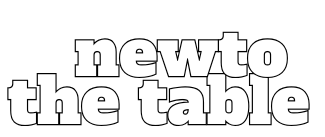In the great debate of buying a starter home versus renting, both sides have their champions. On one hand, homeownership promises a slice of the American dream, complete with a white picket fence and the freedom to paint walls any color you want—yes, even neon green. On the other hand, renting offers the flexibility of a ninja, allowing for quick escapes when life throws a curveball or when the neighbor’s cat decides to audition for “America’s Got Talent” at 3 AM.
As he weighs the pros and cons, he’s not just considering finances; he’s diving into a lifestyle choice. Should he invest in a place to call his own or embrace the carefree life of a renter? This decision could shape his future, so let’s explore the ins and outs of each option and help him find the best path to happiness—whether that’s a cozy home or a temporary pad.
Table of Contents
ToggleUnderstanding Starter Homes
Starter homes represent a practical entry point into homeownership for many individuals and families. These dwellings typically meet essential needs while allowing room for growth.
What Is a Starter Home?
A starter home is often a modest residence, aimed at first-time buyers seeking affordability. These homes usually feature two to three bedrooms and one to one and a half bathrooms. Buyers often find them in suburban neighborhoods or developing areas. While starter homes may lack luxurious touches, they provide a foundation for future equity growth. In many cases, these properties allow homeowners to build financial stability while fulfilling a desire for independence.
Benefits of Buying a Starter Home
Purchasing a starter home offers numerous advantages. Homeownership provides a sense of permanence absent in rental living. Owners can personalize their spaces, enabling creative expression. Furthermore, mortgage payments contribute to equity, while renting does not. Potential tax benefits exist, with homeowners possibly deducting mortgage interest and property taxes. Starter homes often appreciate in value, presenting an opportunity for financial growth over time. Additionally, owning a home fosters community ties, as homeowners invest in their neighborhoods.
The Renting Option

Renting offers flexibility and convenience, allowing individuals to adapt to changing life circumstances. This approach often suits those who prioritize short-term commitments over long-term investments.
Advantages of Renting
Renting provides several benefits. Flexibility stands out as a primary advantage. Renters can relocate quickly without the stress of selling a home. Financially, monthly rent payments often don’t include maintenance costs, which landlords typically cover. This arrangement benefits those who prefer to avoid unexpected expenses. Additionally, renting often requires less upfront capital compared to buying a home. Security deposits tend to be lower than down payments, making it accessible for many. Lastly, renters gain access to amenities, such as pools or gyms, included in rental complexes.
Disadvantages of Renting
Despite its benefits, renting presents drawbacks. Renters lack the opportunity to build equity, differently from homeowners who invest in their property’s value. Increases in rent can occur annually, creating budget uncertainties. Limited control over living spaces also exists, as landlords determine restrictions on alterations and décor. Furthermore, renters might face eviction risks if landlords decide to sell the property or not renew leases. Community ties may weaken since renters tend to move more frequently than homeowners. This transient nature can hinder the development of lasting neighborhood connections.
Financial Considerations
Financial implications significantly influence the choice between buying a starter home and renting. Understanding these costs helps in making an informed decision.
Costs of Buying a Starter Home
Upfront costs for purchasing a starter home typically include the down payment, which averages around 3% to 20% of the home price. Closing costs also range from 2% to 5% of the loan amount. Homeownership carries ongoing expenses like property taxes and homeowners insurance, adding to monthly financial commitments. Maintenance costs can reach approximately 1% of the home’s value each year, ensuring the property remains in good condition. These expenses contribute to the overall financial investment, which may yield equity appreciation over time.
Costs of Renting
Renting generally requires less immediate financial outlay compared to buying. Security deposits often range from one to two months’ rent. Monthly rental payments are the primary ongoing expense, subject to market fluctuations. Additional costs might include utilities and renters’ insurance, which can vary widely based on location and property type. Renters do not build equity, but the flexibility often offsets some of these financial drawbacks, allowing for easier relocation without the commitment of a mortgage.
Lifestyle Factors
Choosing between a starter home and renting involves critical lifestyle considerations that extend beyond finances.
Stability vs. Flexibility
Stability often comes with buying a starter home. Homeownership offers a sense of permanence, fostering community connections and long-term investments. A buyer invests in something tangible, allowing for personalization and growth potential. Flexibility, on the other hand, accompanies renting. Renting allows individuals to move without the burden of selling a property. A renter can easily adapt to changes in job location or personal circumstances. Fewer long-term commitments may suit those prioritizing travel or career changes. Balancing these aspects helps determine the most suitable living arrangement.
Future Plans and Goals
Future plans play a crucial role in the decision-making process. Homeownership aligns with long-term goals, often appealing to those planning to settle down or start a family. Financial growth through equity and appreciation enhances the attractiveness of owning a home. Renting suits individuals with uncertain plans or those who value experiences over material investments. Shorter lease terms provide the freedom to explore new areas or opportunities without the pressures of home maintenance. Assessing future aspirations informs whether buying a starter home or renting best fits individual needs.
Making the Decision
Making the decision between buying a starter home and renting involves careful consideration of multiple factors. Personal circumstances and future aspirations significantly influence this choice.
Evaluating Your Situation
Evaluating individual financial situations can reveal the best option. Factors such as job stability, income level, and savings impact the decision. Assessing current debt, including student loans and credit cards, provides a clearer picture of financial flexibility. Additionally, examining personal relationships can affect the choice; family dynamics may dictate the need for stability or flexibility. Addressing these aspects ensures buyers and renters act based on informed choices.
Factors to Consider
Factors influencing the decision include personal lifestyle preferences and long-term goals. Individuals should weigh the benefits of homeownership, such as equity growth and stability, against the freedom of renting. Think about the impact of location; proximity to work or schools could sway the decision. Future plans, such as marriage or starting a family, may necessitate a stable living situation, making homeownership appealing. On the contrary, those prioritizing traveling or job transitions often lean towards renting, valuing the ability to relocate easily.
Choosing between buying a starter home and renting is a pivotal decision that goes beyond financial implications. It’s about aligning one’s lifestyle preferences with future aspirations. For those seeking stability and a sense of belonging homeownership can be rewarding. It offers a canvas for personal expression and the opportunity to build equity over time.
On the other hand renting provides unmatched flexibility ideal for those with uncertain plans or a desire for mobility. Both options come with their own set of advantages and challenges. Ultimately the right choice hinges on individual circumstances including financial readiness and personal goals. By carefully weighing these factors individuals can make a decision that best suits their life journey.








